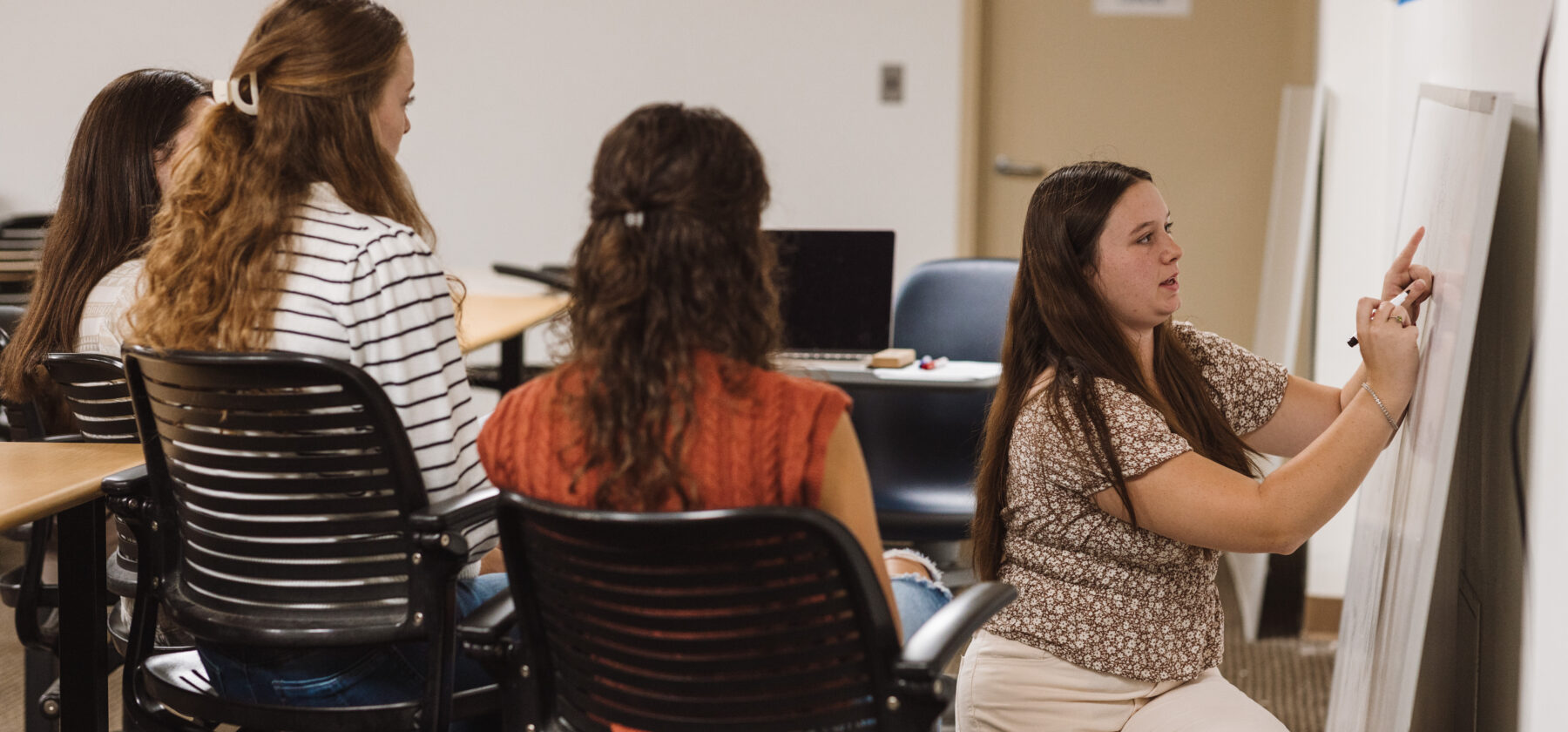Partnerships for Progress: Herschend School and Local Schools Team Up for Literacy
While some may think that schools and educators take a break from learning over the summer, learning never stops at Gordon College’s Peter Herschend School of Education. Last summer the Herschend School of Education was a recipient of a Massachusetts Department of Elementary Secondary Education (DESE) grant that formed an Early Literacy Consortium with local school districts and institutions of higher education. Grant participants collaborated on a five-week program to tutor children on the North Shore who were struggling with reading.
Combatting Low Literacy Rates
The main purpose of the DESE-sponsored Early Literacy grant was to create a partnership between higher education and elementary school districts in response to the low literacy rates plaguing our nation and state. Brent Conway, assistant superintendent of the Pentucket Regional School District, partnered with Kelly Chase, assistant superintendent in Peabody, to invite colleges to partner with their districts by providing summer tutoring to students struggling to read.
“Increasing literacy is a focus across our nation. Fourth-grade proficiency levels have remained low and stagnant as literacy demands needed in the workplace have increased,” Dr. Priscilla Nelson ’74 (education) said. “In Massachusetts school districts strive to address low literacy rates. Evidence reveals that the instructional methods gleaned from the science of reading research is an effective pathway forward for all children.”
The Herschend School has enthusiastically participated in DESE-sponsored initiatives for some time due to Gordon’s reputation for producing highly qualified teachers. This reputation comes from the Herschend School’s national recognition for preparing teachers, including the tutors for this consortium, to implement the science of reading in their teaching. Based on decades of research, the science of reading is an evidence-based reading practice that has been shown to yield benefits for students—perfect for helping struggling readers in local districts.
Tackling Literacy Problems
Three Gordon alumni applied and were hired to become tutors for the consortium project: Rory Harmon ’24, Rachel (Johnson) Dahnke ’24 and Jennifer Souza ’24. This opportunity provided the alums the unique opportunity to participate in a state grant and gain additional experience teaching reading prior to stepping into their first full-time teaching positions.
Under the oversight of district faculty and Gordon professors, the newly minted teacher-tutors taught small groups of students in two districts. Each district determined the curriculum and provided tutor support. Throughout the program Nelson and Professor Julia D’Onofrio observed the tutoring sessions and offered feedback to ensure the Gordon alumni were teaching effectively and had professional support.
Since this consortium was the first of its kind, the Gordon alums had to adapt quickly to their new environments and implement their science of reading training with the students assigned to them. “The biggest impact we saw from the program was with the alumni tutors,” Nelson said. “The tutors reported an increase in their confidence and competence to deliver effective reading instruction using district-chosen curriculum [and gained] additional practice teaching in an authentic mentoring environment.”
Improving Reading for All
At the end of the consortium, the tutors and schools used self-reporting, family feedback and the DIBELS 8 (Dynamic Indicators of Basic Early Literacy Skills) screenings to measure the growth of the students between the start and the end of the consortium. The results highlighted the tutors’ knowledge and practice—enough that Harmon was hired by the Pentucket district as a full-time teacher. But they also showed areas where the consortium could improve its infrastructure and logistics to make tutoring programs even more beneficial to students in future summers.
Overall, the consortium strengthened the connections between higher education and elementary schools—one of the main goals of the project. Nelson and D’Onofrio are hopeful that this consortium lays groundwork for future collaboration between schools as they realize the impact they can have by working together.
“Teacher preparation and districts working together can support the increased implementation of evidence-based practices in reading instruction, influencing student reading proficiency,” D’Onofrio said. And when that happens, the chances of increasing literacy across Massachusetts and the country will only grow stronger.
 The Bell
The Bell